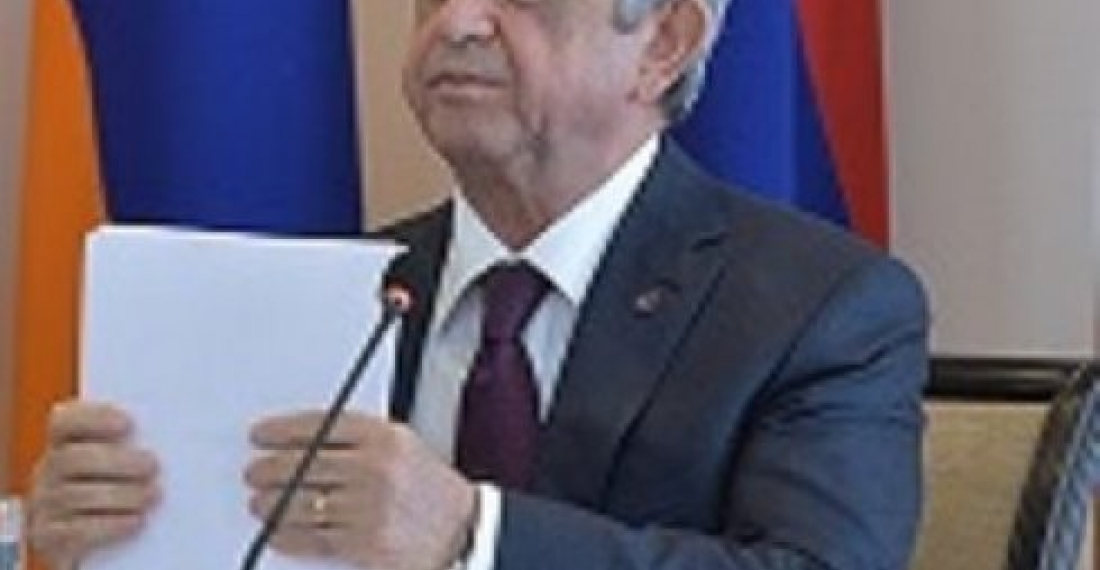The Armenian parliament on Tuesday afternoon (17 April) chose by a vote of 77 in favour and 17 against to appoint Serzh Sargsyan as the country's new prime minister. Sargsyan served as president of Armenia from 2008 to April 2018. Following constitutional changes all the executive powers of the president have now been transferred to the prime minister.
The parliamentary vote took place whilst thousands of demonstrators protested in the streets of Yerevan against Sargsyan's selection. Earlier the leadership of the police force issued a statement saying that the demonstrations were illegal and called on the demonstrators to disperse or face the consequences. In an incident close to the National Assembly building yesterday the police used stun grenades to stop demionstrators crossing a police cordon. Over the last twenty four hours several dozen protesters were reported to have been arrested.
In a speech before the national assembly vote Sargsyan said that a new era was starting for Armenia.
source: commonspace.eu with agencies







